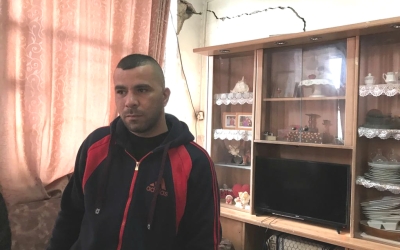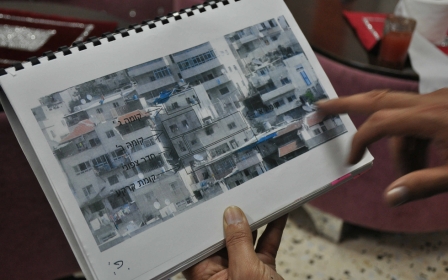Israeli court orders eviction of 87 Palestinians from East Jerusalem neighbourhood

Israel's Jerusalem District Court ratified on Thursday the eviction of 87 Palestinians from the Batan al-Hawa area in Silwan in favour of the Israeli settler group Ateret Cohanim.
The Palestinian families, who have lived in the area for decades, are expected to be evicted from their homes in Silwan, located in occupied East Jerusalem, before the inauguration of US President-elect Joe Biden on 20 January 2021.
Ateret Cohanim, which aims to expand the presence of settlers inside Palestinian neighbourhoods of East Jerusalem, had sued the residents of Batan al-Hawa, claiming that the land was owned by Yemeni Jews during the Ottoman period until 1938, when the British Mandate moved them due to political tensions.
It is planning to set up a heritage centre for Yemenite Jewry on the site, at an estimated cost of 4 million shekels ($1.2m).
Silwan’s areas of Batan al-Hawa and Wadi Hilweh are a hotspot for Israeli settler activities, which include archaeological digging underneath Palestinian homes to search for the lost biblical "City of David".
Palestinians denied equal rights
Ateret Cohanim started the process of suing the Palestinian residents of Batan al-Hawa almost 20 years ago when it acquired the Jewish religious trust of Benvenisti, which was registered as the owner of the land of Batan al-Hawa, on which a number of Palestinian homes were built in the 1960s.
After launching a legal case against the residents, Ateret Cohanim has been able to settle around 23 settler families among 850 Palestinian residents, under heavy security.
The 87 Palestinian residents of Batan al-Hawa have been living in their homes since 1963.
Israeli law works in favour of settlers by allowing only Jews to claim property they owned prior to 1948 while denying the same right to Palestinians.
Middle East Eye has previously reported how Israeli settler advances in Silwan began in 2004 when two outposts were established, and how in 2014 the issue escalated, with the current number of outposts standing at six, ranging from apartments to entire buildings.
Cable car
Earlier this month, Israeli authorities announced an excavation plan for the construction of a cable car running over Silwan, a Palestinian-majority neighbourhood.
The controversial project would dramatically alter the landscape of the historic Old City of Jerusalem and expand the Israeli presence in Silwan.
Since 1995, the Israel Antiquities Authority has been excavating sites in Silwan with the support of the settler foundation Ir David, officially in order to create a new tourist attraction and find evidence of the existence of the three-millennia-old "City of David".
The completion of the "City of David" project, including a Roman-style "avenue" built over streets that have been home to generations of Palestinians, would cement the position of the 450 illegal settlers currently living in Silwan and marginalise the 10,000 Palestinian residents of the neighbourhood.
Middle East Eye propose une couverture et une analyse indépendantes et incomparables du Moyen-Orient, de l’Afrique du Nord et d’autres régions du monde. Pour en savoir plus sur la reprise de ce contenu et les frais qui s’appliquent, veuillez remplir ce formulaire [en anglais]. Pour en savoir plus sur MEE, cliquez ici [en anglais].






